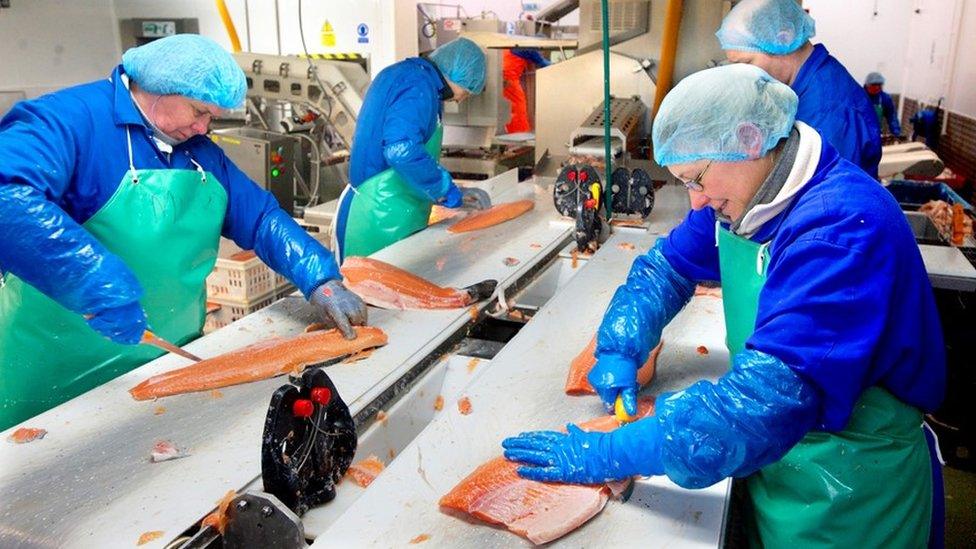Brexit is 'real risk' to Scottish firms
- Published

Aquascot was founded in the Highlands in 1987 and became an employee-owned business in 2008
The chairman of Scotland's biggest employee-owned company has said Brexit uncertainty is setting off "big red flashing lights" for business.
Dennis Overton, of high-end seafood processor Aquascot, said his industry was now facing a time of "real risk" for both imports and exports.
Prime Minister Theresa May is asking EU leaders to postpone the Brexit date.
Mr Overton's comments came as he called on other entrepreneurs to consider employee-ownership.
He also expressed concern that MPs still had not agreed a deal on Britain's departure from the EU - originally planned for 29 March.
'Contingency plans'
"We're at quite a serious point," Mr Overton told BBC Radio's Good Morning Scotland programme.
"If we do see a no-deal exit from the EU, that's gong to be problematic to quite a number of players in the food and drink sector.
"It's probably most extreme for those people who export high-value perishable products and seafood. Shellfish, farmed salmon and farmed trout come into that."
He added: "We're heading into a period - it could be in the coming weeks - of real risk.
"That risk has been looked at and thought about, but frankly it's a big challenge. (There are) big red flashing lights on at the moment."
Alness-based Aquascot has been putting contingency plans in place, including stockpiling some goods and preparing for any possible shipping delays.

Aquascot Trust chairman Dennis Overton said moving to employee-ownership was the best way to safeguard and grow the business
Mr Overton was one of the founders of Aquascot in 1987, with the company becoming owned by its employees in 2008.
Ahead of an event organised by the body Entrepreneurial Scotland, he has encouraged other private business owners to consider doing the same.
He said of Aquascot's experience: "We looked carefully at what others had done in our situation, and looking back over the previous 30-40 years, the track record wasn't really that good.
"What we saw happen was the sale to a trade buyer and quite often, within three to five years, there'd been consolidation - and that consolidation was always south, out of the area.
"We thought that would be a bad outcome, because we are very well located for the aquaculture sector within Britain and we have 180 people - a lot of whom have played a big part in making the business what it is."
Mr Overton said it was now much easier for businesses to become employee-owned, due to increased support from organisations like Scottish Enterprise and the 100-plus Scottish firms that have done the same as Aquascot.

For the latest business news as it happens, follow BBC presenter Andrew Black's updates each weekday morning on BBC Radio Scotland's Good Morning Scotland programme between 0600 and 0900.